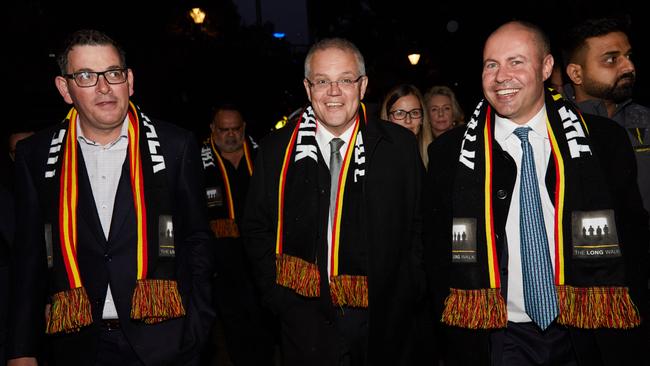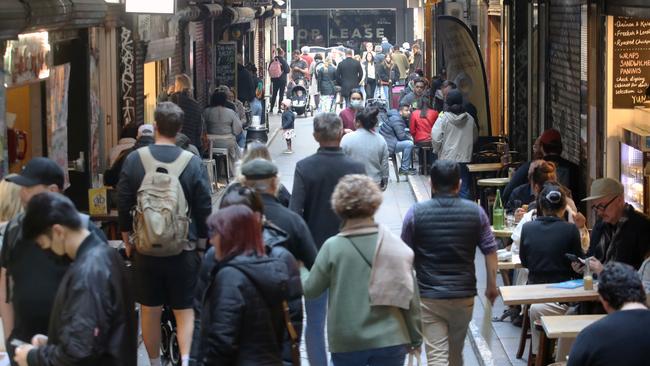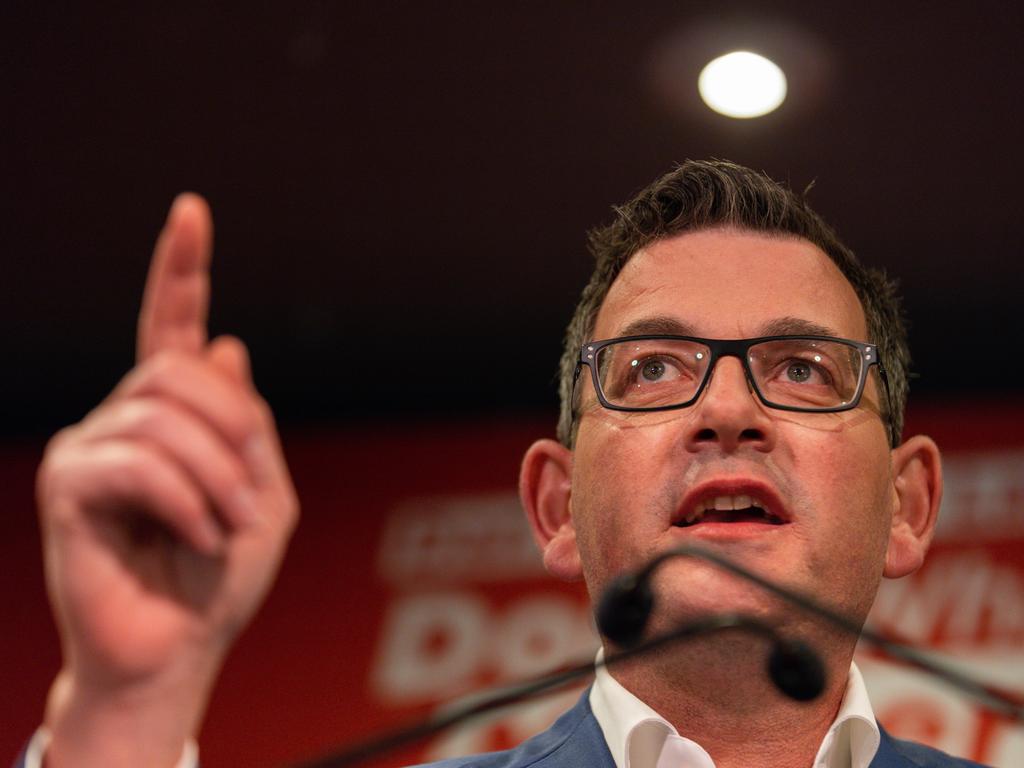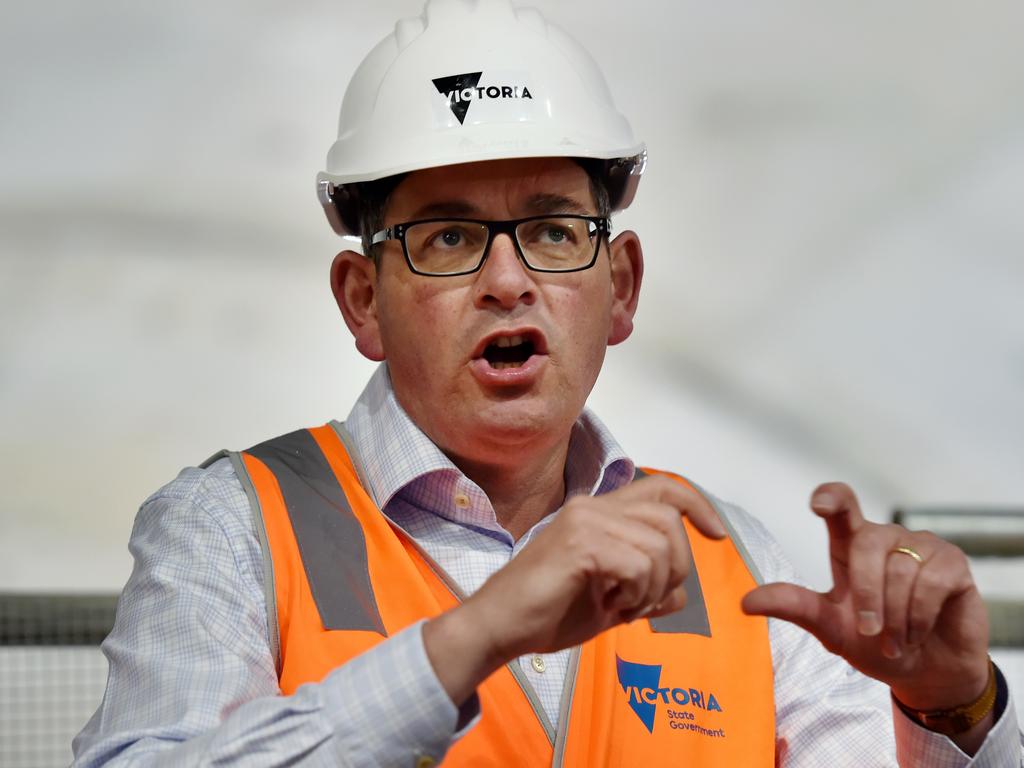Federal cash splash made the good times roll for Daniel Andrews
The Victorian Premier owes both Scott Morrison and Josh Frydenberg a huge debt of gratitude after his big win.

There is, in effect, no doubt that the length and severity of Andrews’ lockdowns were matched only by the torrents of taxpayers’ money that flowed to Victorians as the restrictions dragged on and on.
On average, Australians received $2800 in JobSeeker payments per person; Victorians pocketed more than $4000.
At the same time, the lockdowns significantly reduced the scope for consumption, most obviously on travel and hospitality. As a result, household savings in Victoria leapt from just 6 per cent of gross disposable income in 2019 to an unprecedented 21 per cent in 2021, before declining to a still very high 17 per cent this year.
Adding to the bonanza, working from home, which was especially widespread in Victoria, saved on travel costs as well as on the time spent travelling. Careful estimates by Sydney University’s David Hensher, who is one of the world’s foremost transport economists, suggest that when a money value is put on the time savings, the gain to Victorians who worked from home amounted to some $5000.
As a result, voters were flush when they went to the polls. And few were better off than the Victorians who work in the state’s burgeoning public sector.

Since Andrews became the state’s premier, employee expenses in the general government sector have increased at an average annual rate of 9 per cent.
In part, that is due to steady growth in the numbers the state employs, which rose from 285,000 in 2016 to 346,000 in 2021, with employment in the public service, narrowly defined, growing by an eye-watering 18 per cent from June 2020 to June 2021. However, more than half the increase in employee expenses reflects generous pay rises, which have averaged nearly 5 per cent per annum.
It is unquestionably true that the lockdowns were painful and often resented. Yet while public support for the restrictions eventually weakened, it always exceeded 60 per cent, with relatively small percentages strongly opposing them.
It would, moreover, be easy to exaggerate the psychological distress the lockdowns caused. Rather, rigorous studies by Nick Glozier, who is professor of psychological medicine at the University of Sydney, and his colleagues, show that the adverse impacts largely affected mothers with young children, with much less effect on other households.
Far from rising, as was widely feared, suicide rates in Victoria therefore fell significantly below the levels one would have expected on the basis of previous trends, perhaps because the restrictions on access to pubs reduced alcohol consumption.
Last but not least, as unpleasant as the lockdowns were, it is likely that there was a “it feels great when you stop” effect, bringing a sense of relief which helped wipe out accumulated resentments.
And there is the promise of happy days to come. On average, Victorians will pay $4700 in state taxes this year – but they will receive the benefits of nearly $14,000 in per capita state expenditure. Infrastructure spending is especially lavish: having averaged $5bn a year in the period leading up to Andrews taking office, it has more than doubled since, and is expected to reach an average of $22bn a year from now to 2024-25.
A substantial share of those outlays will be financed by Commonwealth grants. But the grants have not been sufficient to prevent mounting deficits, with the flip side of those deficits being a spectacular build-up in public debt.
Taking the six years prior to Andrews becoming premier, the state’s net debt – the difference between the value of the government’s assets and its liabilities – was equivalent to merely 3 per cent of gross state product (which measures the value of the goods and services the state produces). By 2020-21, it had reached 16 per cent of GSP and – even on the state government’s optimistic projections – is expected to exceed 25 per cent of GSP by 2025-26, when it will amount to $160bn, as compared to barely $10bn in 2010-11.
Those are clearly very large numbers: in 2025-26, there will be $23,000 in state net debt for each Victorian man, woman and child. But the sums seem entirely abstract while the unending flood of cash and goodies is as tangible as can be. Nor is it by any means certain that the house will come crashing down: typically, it is not the accumulation of debt that brings state governments to their knees but financial crises, such as the collapse of the Victorian Economic Development Corporation, which destroyed the Cain-Kirner Labor government in 1992.
And who knows, even if the reckoning comes, the federal government may well bail Victoria out. As for Andrews, he will, by then, have ridden into the sunset, singing hosannas to Morrison and Frydenberg for making the good times roll.







As Dan Andrews celebrates his convincing election win, he should be lighting candles to Scott Morrison and Josh Frydenberg.